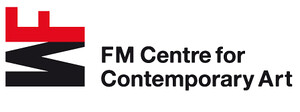Eastern-European Art and Archives from the Marinko Sudac Collection
October 26–December 23, 2016
Frigoriferi Milanesi
Via Piranesi 10
20137 Milan
Italy
Hours: Tuesday–Friday 5–9pm,
Saturday–Sunday 11am–6pm
T +39 02 73981
F +39 02 7398 3280
info@fmcca.it
Curated by Marco Scotini in collaboration with Andris Brinkmanis and Lorenzo Paini
Non-Aligned Modernity is one of the largest and most comprehensive presentations of Eastern European art during the Cold War to ever be displayed. The exhibition gathers works from the Marinko Sudac Collection (Zagreb, Croatia), one of the conceptually most complete and relevant private collections of Eastern European art and archives, that—over the years—has set itself the task of retracing radical, artistic trends within a coherent avant-garde line in the areas of Central Eastern Europe.
Non-Aligned Modernity focuses on the cultural context of the former Yugoslavia and Central Eastern Europe; it investigates a chapter in art history that is anything but marginal, and cannot be framed either within the ideology of the Soviet Bloc, or within the liberalistic model of Western democracies. Only in Yugoslavia, in fact, the compenetration of East and West did not result in a language assimilated to the Western universalistic concept of modernity, but in an autonomous and equivalent model. Is it possible, then, to interpret this scenario as a unique example of Socialist Modernism? And to challenge the canonization of art history proposed by the Western modernity and its assumption of universalism, neutrality, and autonomy, thus revealing a multiplicity of “local modernities” according to each geo-political context? The exhibition, curated by Marco Scotini, tries to give an answer to these questions. Re-reading the artistic scene of the ex-Yugoslavia effectively means facing a constitutional and unshakeable cultural difference.
The ten halls of the FM Centre for Contemporary Art will give a unique depiction of the Eastern European art scene from the 1950s to the fall of the Berlin Wall with over 120 artists and over 700 artworks and documents of extraordinary historiographic importance: paintings, sculptures, photographs, vinyl records, films, videos, graphic works, and artist’s books. The core of the exhibition are the works of the Gorgona group members, their collective works, and their correspondence with the important actors on the European and Italian art scene (Piero Manzoni, Enzo Mari). A special space will be dedicated to Antun Motika’s experiments and Aleksandar Srnec’s experimental films, as well as the films of the OHO group, and works by the Zagreb-based Group of Six Authors together with works by Sanja Iveković, Marina Abramović, Goran Trbuljak, Tomislav Gotovac and Radomir Damnjanović Damnjan, Bosch + Bosch group. The last section will focus on the vast production of conceptual art in the countries of Central Eastern Europe: Hungary, ex-Czechoslovakia and Poland. A special section will show the varied documentation of unofficial exhibition spaces, such as Polish independent galleries NET and Akumulatory 2, PERMAFO, First Open Studio in Bratislava, Balatonboglár in Hungary; and a parallel chronology of exhibitions in Eastern Europe.
Exhibited artists: Marina Abramović, Milan Adamčiak, Karel Adamus, Gábor Attalai, Vojin Bakić, Dimitrije Bašičević Mangelos, László Beke, Jerzy Bereś, Slavko Bogdanović, BOSCH+BOSCH Group, Vladimír Boudník, Eugen Brikcius, Boris Bućan, Dubravko Budić, Dalibor Chatrný, Marijan Ciglić, Attila Csernik, Radomir Damnjanović Damnjan, Drago Dellabernardina, Boris Demur, Braco Dimitrijević, Nuša and Srečo Dragan, Miklós Erdélyi, EXAT-51 Group, Eugen Feller, Ferenc Ficzek, Stano Filko, First Open Studio, Ivo Gattin, Tibor Gáyor, Iztok Geister, Gorgona Group, Tomislav Gotovac, Group of Six Authors, Milan Grygar, Vladimir Gudac, Gyula Gulyas, Tibor Hajas, Matjaž Hanžek, László Haris, Károly Hopp-Halász, Miljenko Horvat, Sanja Iveković, Željko Jerman, Marijan Jevšovar, György Jovánovics, Željko Kipke, Károly Kismányoky, László Kerekeš, Miroslav Klivar, Julije Knifer, Milan Knížák, J.H. Kocman, KOD Group, Běla Kolářová, Július Koller, Gyula Konkoly, Vladimir Kopicl, Jarosław Kozłowski, Ivan Kožarić, Naško Križnar, Paweł Kwiek, Andrzej Lachowicz, Katalin Ladik, László Lakner, Otis Laubert, Natalia LL, Vlado Martek, Slavko Matković, Dora Maurer, Karel Miler, Era Milivojević, Marijan Molnar, Antun Motika, Marian Mudroch, David Nez, Koloman Novak, Ladislav Novák, OHO Group, Attila Pálfalusi, Mihovil Pansini, Pécsi Műhely, Géza Perneczky, Vladimir Petek, Ivan Picelj, Sándor Pinczehelyi, Marko Pogačnik, Jaroslav Pokorný, Bogdanka Poznanović, Božidar Rašica, Red Peristyle, Józef Robakowski, Đuro Seder, Rudolf Sikora, Zdzisław Sosnowski, Aleksandar Srnec, Tamás St. Auby, Jan Steklik, Sven Stilinović, Mladen Stilinović, Josip Stošić, László Szalma, Kálmán Szijártó, Bálint Szombathy, Petr Štembera, Slobodan Tišma, Raša Todosijević, TOK Group, Endre Tót, Desider Tóth, Goran Trbuljak, Gera Urkom, Jiří Valoch, Josip Vaništa, Verbumprogram, Fedor Vučemilović, Zbigniew Warpechowski, Jan Wojnar, Jana Želibská
Galleries: Ugo La Pietra, The Degrees of Freedom at Laura Bulian Gallery; temporary space: Michele Zaza, Works 1970-2016 at Giorgio Persano Gallery
FM Centre for Contemporary Art is promoted by Open Care (Bastogi Group), the only company in Italy offering integrated services for the management and conservation of art.



